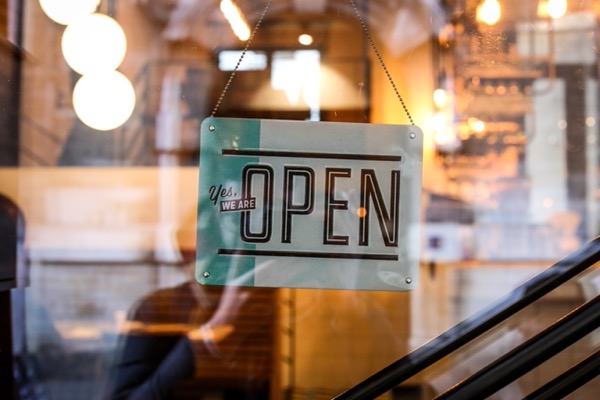Customer journeys are completely different nowadays. Today, consumers have a million - and then some! - choices at the click of a button, and they expect to be able to find the exact product they’re searching for in a few easy scrolls. Online shopping has opened things up in a way that if they can’t find the product they want on your site, or your social media feed, they can simply ask Google or Alexa who else is selling it and at what prices, and they’ll know within seconds.
Retailers - especially smaller independent local retailers who might be pressed for time, or don’t have any marketing experience - don’t always recognize or understand the impact their online presence has. Social media, their website, it might just be another job to tick off their long list, that they’ll get around to at some point. Or maybe they don’t really care for this online world.
They should care though, because according to research 87% of shoppers begin their product searches online. Further research shows that in the US almost $5 is spent in-store for every dollar spend online following online research. So even if most purchases happen in store, you can guarantee that most customers have already done a lil bit of Googling beforehand. Actually, 82% of smartphone users consult their phones before making a purchase. And, whether you’re a clothing store, a restaurant or a hair salon, 45% of read reviews before making a purchase or deciding to ‘go ahead’.

It’s our job as marketers to educate retailers on why digital customer experiences matter, and why their “good enough” might not really be good enough at all. They’re operating in a world where it can be so easy to create slick marketing information, that by doing something that’s not as good, they could be - no, in fact they ARE - missing out.
They might think that using old photos, screenshots, uncropped images or boring stock images that don’t show off a product to its full potential is ok (eek). Think of it as filling your timeline, as opposed to feeding it. They might have “borrowed” images that they found on Google, without thinking about copyright or the fact that you actually sent them great images a while ago (double eek). Their Facebook page might have been dead for 6 months (triple eek). Their images might be fine, but actually navigating to where to find that product on their site is hard. This might even spill over into their in-store marketing, with low quality images used on printed materials on display and borrowed content on show.
As a brand, encourage your retailers to do research on what their direct competitors are doing. They could jumpstart this process by some low-key competitive benchmarking. What does their online journey look like? And what posts seem to be working for their social media?They might be totally missing a trick somewhere that would make it so much easier. Do their sites look better? Are their social media feeds fresh and exciting? Is it an absolute breeze to go from seeing a product looking amazing online to purchasing it straight away? A good thing to do for retailers is to really think about their customers and - together with the team, map what their customer journey is like within their online environment. Complimentary, market research (either in store or online) and going through Google Analytics will help retailers find out if customers are getting stuck somewhere, or dropping off the face of the website completely.

For a retailer, online marketing is a whole extra world, yet equally important as the offline one that already asks their time and commitment! Therefore, it needs to be quick and easy to have the right content available and to be able to access it and use it confidently and conveniently. Business owners don’t have time to coordinate all of this different content from all the different brands they work with, add it it to their website and think of regular, catchy content for social media. They’re running their businesses!
Embrosa answers this very need. They help retailers by providing approved and beautiful content from multiple suppliers and brands in one place, and at the same time, providing ready-made general content that can be added at the touch of a button. Retailers using Embrosa are always accessing the latest versions of images and have high-quality versions on hand to make sure that offline and online match up. Embrosa’s materials are good enough to be used offline too! And, too often forgotten by all in the online world, pictures have rights. Embrosa has already made sure that retailers have legal rights to use the materials that are provided in the app. Think model rights, copyright, et cetera.
Retailers can also choose to simply use Embrosa as their daily inspiration in their search for content that they can create themselves, rather than having to come up with completely independent ideas on top of everything else! Embrosa is their easy to use marketing tool that allows sharing and downloading, but also allows them to plan ahead. A retailer could fix a planning for, let’s say a whole month, using the right pictures, videos and general content, and be done in no-time.
The upside for brands that provide directly to Embrosa is of course, that they can be sure that their retailers are receiving the right information and materials, and that there’s a consistent approach across the brand. It also means that the overarching brand strategy is aligned to the smaller, local-level campaigns, broadening a brand’s reach. The extra advertisement, basically created by retailers using the brand’s images and materials on their own social media and websites, reaching customers everywhere... Priceless! Plus, a brand manager can easily check which content their retailers are using, and what’s working best for them. This gives brands some great insights into the end-markets’ needs!
Retailers and business owners that have mapped their (online) customer journey, are insightful into what works for their competitors, that have set the right tone of voice AND are aligned with the brand they’re promoting, can get back to what they love most, running their business or their store.
